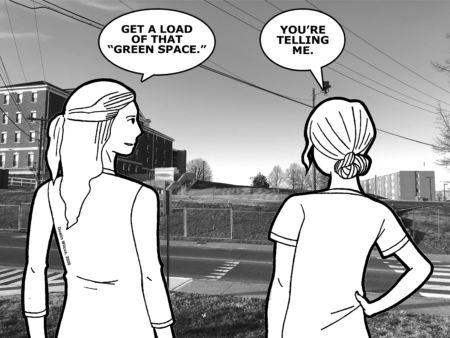Written by Bob Valentine, Contributing writer
It is official: We are living distracted lives in a distracted world.
There, doesn’t that make you feel better? It explains a great deal about what is happening all around us, even if we’re not terribly aware of what exactly is going on.
In the last few days, the people who brought you the internet, text messaging, cellphones, Instagram, Twitter, Facebook, livestreaming and the rest of the instant gratification tools have come forth to join parents, teachers and newspaper editors in their fear of pervasive media. Silicon Valley is officially troubled at our dependence on, and addiction to, their toys and tools.
Of course, this won’t be news to anyone on a college campus. Publications from Computerworld to The Atlantic have long decried the isolating and distracting influences of mobile devices. Studies have examined the influence of our device dependence and, generally, the results range from the troubling to the terrifying.
The opioid problem may be a drop in the bucket by comparison.
It is instructive that organizations like Google and Facebook have admitted an interest in the “dark side” of digital media. This kind of admission makes it easier to believe that the problem with distracted living is more than the imagination of old-fashioned thinking from baby boomers or disgruntled Generation Xers.
And those people- the eldest of the last two generations- are not immune from distraction. The old joke from the 1960s was the grandfather who had a wallet full of photos of his grandchildren. The new joke – and it ain’t funny – is the grandfather who has a smartphone full of photos; this is an infinite improvement over an old leather wallet, and an hour of agony for the poor person who made the mistake of asking, “How are the grandkids?”
Grandmothers are just as capable of texting in the doctor’s waiting room as their grandchildren are during classroom lectures. While kids can wile away time with “Angry Birds” or “Candy Crush,” older adults can do online crossword puzzles or Sudoku. There’s never a reason to simply sit there and be bored.
The media has always taken the wrap for distraction. Mothers of the 1930s would scold fathers who read the evening paper before dinner instead of playing with the kids. A whole generation in the 60s was raised without the knowledge of their parents because one’s favorite TV shows could not be missed.
Maybe that’s why the children of the 60s and 70s have become the helicopter parents of the 2010s: They learned the painful lesson of growing up with distracted parents and are attempting to right past wrongs. Maybe.
This time the distraction may have gone too far. Our society’s solution will be to impose laws. Perhaps corporations will limit your access to the media out of fear of lawsuits. It will take years, but if a harm can ever be proved, our society will react to it. “Overreact” is probably the better word.
In the meantime, each of us must ask ourselves a single question: Am I distracted from life itself?
The answer is as varied as the people who will ask it, but the preponderance of evidence suggests we are missing important parts of our lives in order to participate in the trivial. Most of us are not going to the White House for dinner this week, nor will we be invited to Prince Harry’s wedding.
The plight of the earthquake victims in Formosa, heartbreaking as it is, is not as important to you as the plight of a friend who has lost a treasured family pet. We know we can watch the news and consume the blogs, but can we listen and console? Can we be present for that?
If not us, then who? And if not now, then when?






































































































